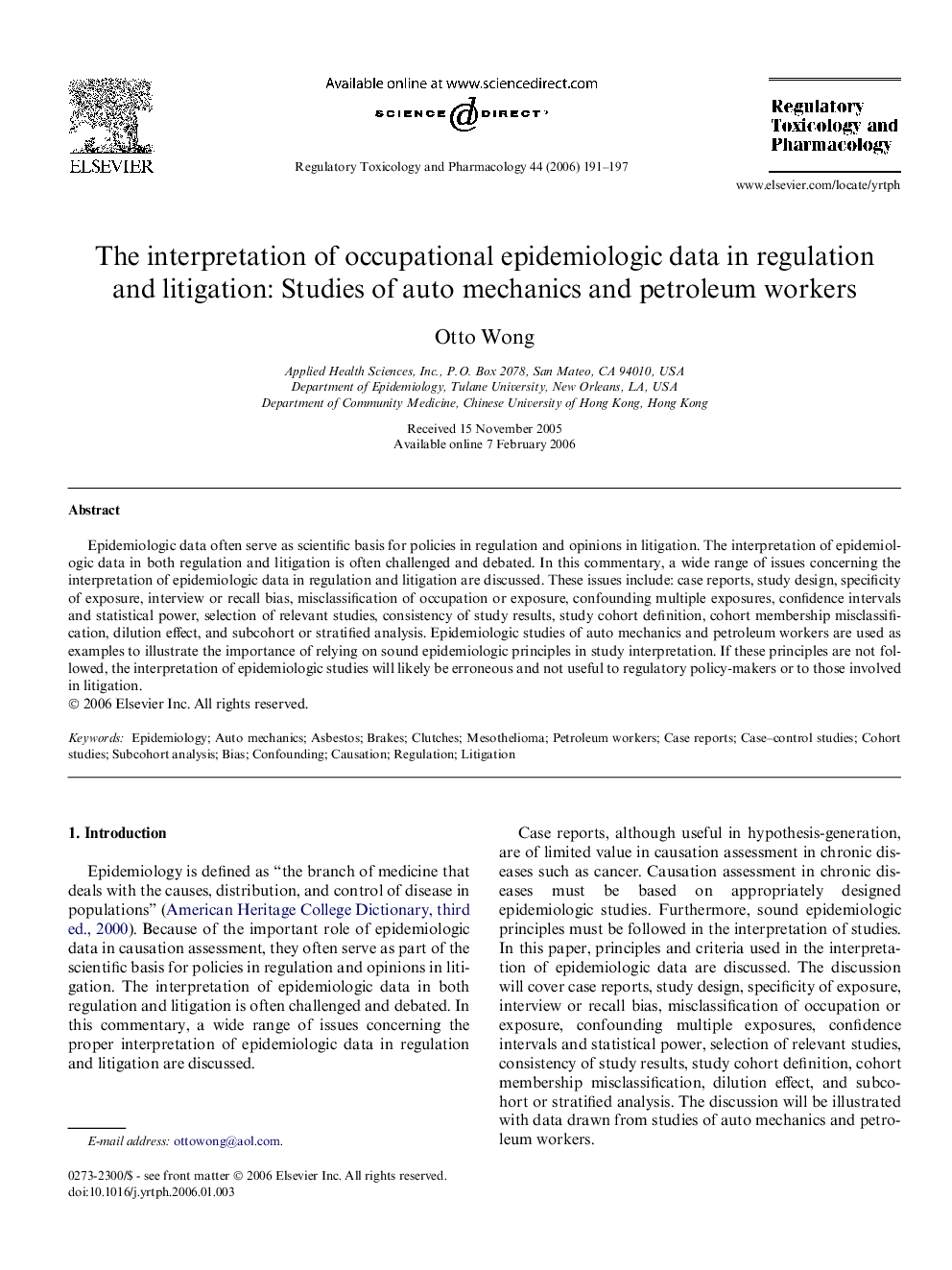| Article ID | Journal | Published Year | Pages | File Type |
|---|---|---|---|---|
| 2593017 | Regulatory Toxicology and Pharmacology | 2006 | 7 Pages |
Epidemiologic data often serve as scientific basis for policies in regulation and opinions in litigation. The interpretation of epidemiologic data in both regulation and litigation is often challenged and debated. In this commentary, a wide range of issues concerning the interpretation of epidemiologic data in regulation and litigation are discussed. These issues include: case reports, study design, specificity of exposure, interview or recall bias, misclassification of occupation or exposure, confounding multiple exposures, confidence intervals and statistical power, selection of relevant studies, consistency of study results, study cohort definition, cohort membership misclassification, dilution effect, and subcohort or stratified analysis. Epidemiologic studies of auto mechanics and petroleum workers are used as examples to illustrate the importance of relying on sound epidemiologic principles in study interpretation. If these principles are not followed, the interpretation of epidemiologic studies will likely be erroneous and not useful to regulatory policy-makers or to those involved in litigation.
